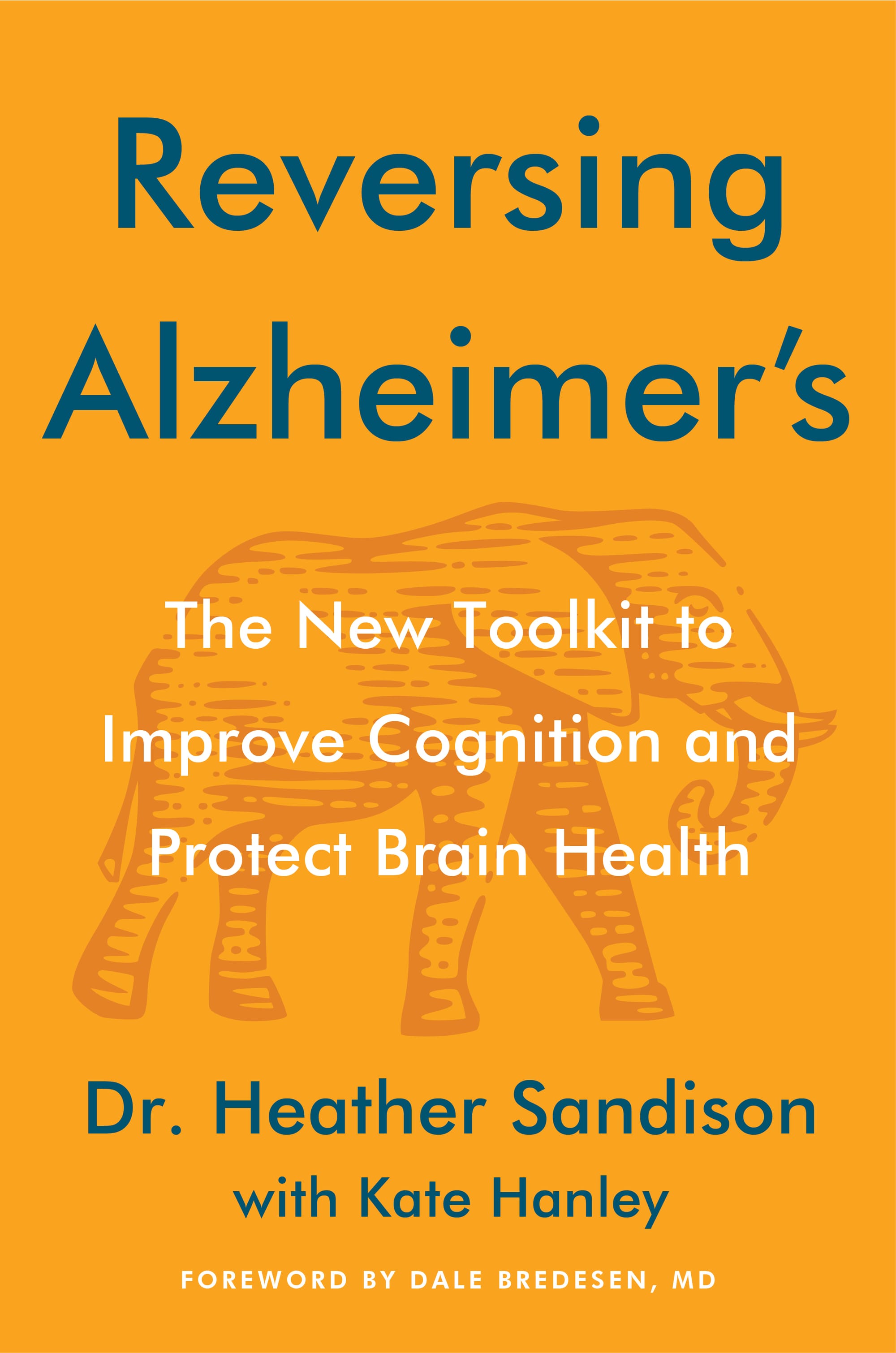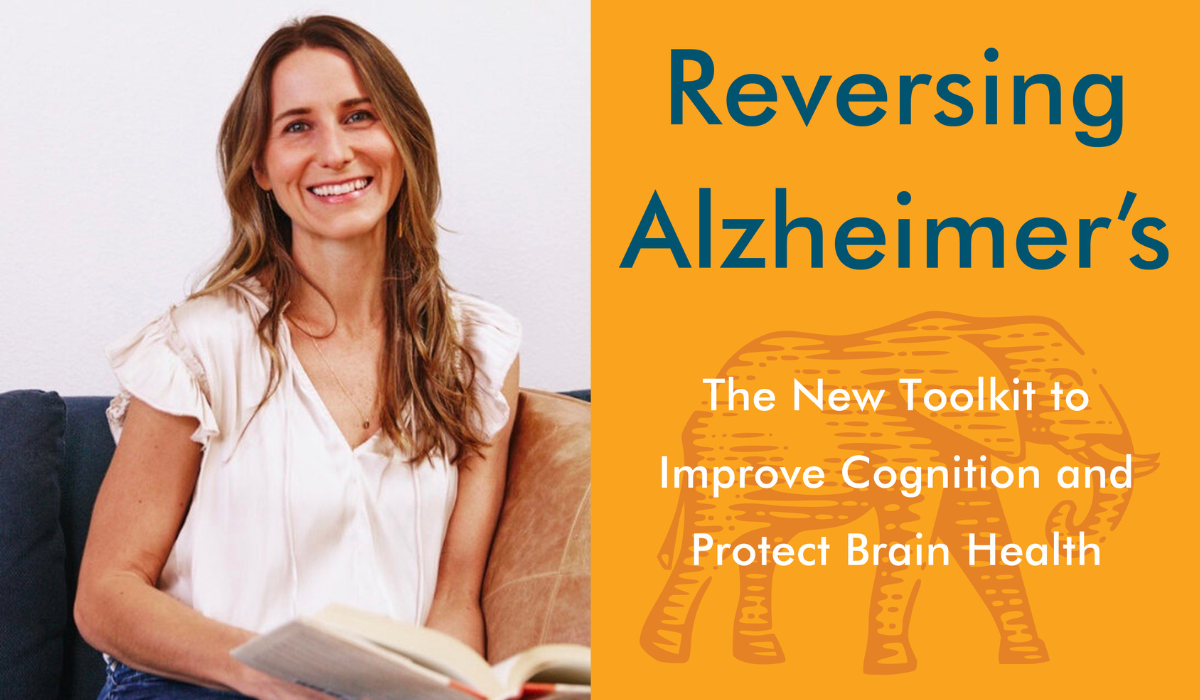These Habits Can Protect Your Brain Against Cognitive Decline at Every Age. Are You Doing Them?
Heather Sandison, ND, a naturopathic doctor who’s dedicated to studying and caring for patients with dementia and Alzheimer’s disease, will never forget a patient she calls Darlene. When Darlene came to see her, she had a Montreal Cognitive Assessment (or MoCA, which is a cognitive screening tool) score of 2—the cutoff for a normal MoCA is 26.
Darlene couldn’t speak in full sentences. She was completely dependent on her husband. They were desperate to try anything when they came to see Sandison, who’d just completed a training with Dale Bredesen, MD, an internationally recognized expert in Alzheimer’s disease who argues that it’s possible to prevent and even reverse cognitive decline.
Sandison put Darlene on Dr. Bredesen’s protocol and was skeptical that it would help. Six weeks later, she couldn’t believe what she was seeing. “Darlene’s MoCA score had gone up to a 7 and she was speaking in complete sentences,” says Sandison. “She and her husband had started ballroom dancing again. I thought, If that can happen for Darlene, who had full-blown Alzheimer’s disease, what could the protocol do for people who don’t have dementia or Alzheimer’s yet?”
Now, Sandison has a new book out in which she lays out a handful of science-backed strategies proven to improve cognition and quality of life in dementia patients. Even better, these tactics have the potential to help all of us strengthen our brain health as we age. This week, The Sunday Paper sat down with Sandison to talk about her new book, Reversing Alzheimer’s, and what all of us can do starting today to protect our brains from cognitive decline.
A CONVERSATION WITH HEATHER SANDISON, ND
What is the protocol that you used with Darlene and that continues to help all your patients?
Alzheimer’s is a chronic complex brain degeneration. And what we need is a complex approach to match the complexity of the disease process.
The protocol starts with a foundational lifestyle perspective: I recommend an organic ketogenic diet that puts you in ketosis, where you are metabolizing fat for fuel rather than sugar. We see dramatic cognitive improvement with this approach to eating. And keep in mind, it’s not your Atkins-like bacon-eggs-and-cheese keto diet. It’s very vegetable forward, and we’re really looking to cut out processed food—particularly ultra-processed food—more than anything. I think this type of ketogenic diet does about 50 percent of the lifting in terms of getting brain recovery and repair. Exercise, sleep, and stress management are also crucial aspects of the protocol.
In terms of where to begin, here’s my best advice: What’s the easiest place to start (so that you can feel like you get a win), and what’s going to make the biggest impact? There’s an entry point that’s different for everyone. For you, it might mean getting better sleep—which in turn can help you feel rested so you don’t have as many food cravings, and you have the energy to work out.
What’s the mechanism behind why a healthy ketogenic diet works so well when it comes to cognition?
I don’t think we have precise answers, but we do have multiple hypotheses.
You can think of the brain as a hybrid engine, and we can switch fuel sources from glucose to ketones. The brain will preferentially uptake the ketones; they burn more efficiently, which means you don’t create oxidative stress—a hallmark of aging. The healthy fats you get in a ketogenic diet (think grass fed beef, wild-caught fish, nuts, seeds, avocado, and olive oil) also reduce inflammation in the brain, which is another aspect of the dementia process.
I don’t have dementia, but I do get into ketosis regularly. And I notice when I’m in ketosis, I feel more articulate, it’s easier for me to find words, I don’t have as much brain fog, and my mood is more stable. I also sleep more efficiently. And so, I personally have felt the benefits. But more important than that, I’ve watched my patients see tremendous benefits following a healthy ketogenic diet.
Is there anything too few of us are talking about when it comes to something we can do to help our cognition?
Not enough people are aware of how powerful exercise can be—and particularly, the power of combining cognitive and physical exercise at the same time. I think many people have heard that ballroom dancing is a potential way to prevent Alzheimer’s. That’s a great example of this kind of dual task, where you’re physically engaged and cognitively trying to remember the steps, stay in tune to the music, and know where your partner is throughout it all.
Going to exercise classes where you’re cued by an instructor, like Zumba, barre, Pilates, and yoga, is also great. These are activities where you have to stay engaged to cues, both cognitively and physically. Walking and talking is another example of this type of exercise that’ll get you better outcomes cognitively than exercise alone or brain engagement alone.
Are there things many of us are doing in the name of brain health that we should stop right now?
People are afraid of eating fat, and they think it’s healthy to be consuming carbohydrates—especially processed carbohydrates. This idea that we need a bunch of whole grains is misguided, particularly for brain health.
I also think that blood pressure is something that must be managed. Too many people think having higher blood pressure is normal as they age, but here’s the truth: Reducing hypertension reduces your risk for Alzheimer’s.
The biggest myth around Alzheimer’s is that there’s nothing you can do about it. But there’s an overwhelming number of things that we can do for brain health. For example, sleep apnea causes dementia. Not getting enough oxygen to your brain at night is incredibly detrimental, both to cardiovascular health and brain health.
Who is this book for, and what do you want us to learn from it?
The person I really wrote this book for is the adult daughter of someone with dementia who is feeling like she wants her parent to have the best, last phase of life. I imagine my patients’ daughters reading this book and saying, Okay, I want this for mom—and also, I want to better understand what I can do to avoid traveling down the same path of cognitive decline.
And what I love is that when the reader starts making these healthier decisions for her brain, it’s going to impact her husband and her kids. She’s going to share it with her cousin, her brother—that’s the ripple effect.
Everyone deserves to know that you can have control over your brain health, and you can make an impact based on the decisions that you make each day.

Please note that we may receive affiliate commissions from the sales of linked products.



